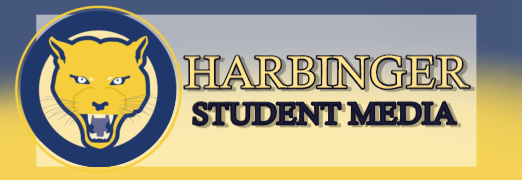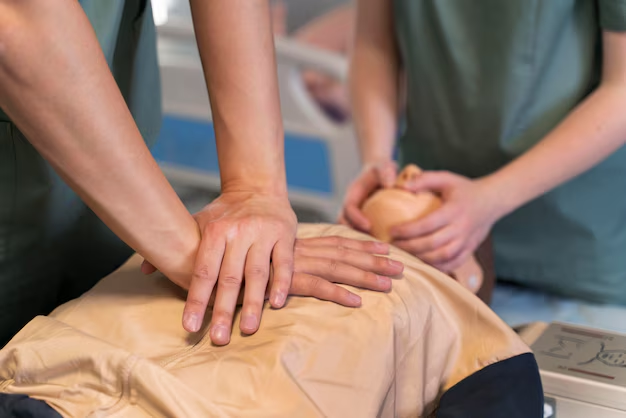How I Survived A Cardiac Arrest
I died. When I was 15 years old, I was playing Minecraft in my room when, out of nowhere, I collapsed on my desk in a cardiac arrest.
A cardiac arrest is when the heart stops beating due to a failure in the heart’s electrical system. They can happen to anyone, from infants to the elderly, and can happen at any time, whether asleep, relaxing, or active.
“I was in my room and heard a sound that was like a Minecraft zombie,” says my brother Daniel Weidner, who was 13 at the time of my cardiac arrest. He is now 18, and I am now 20.
The noises Daniel heard were agonal breathing, which is a stage of cardiac arrest when the body reflexively gasps for air.
He called my name to see what I was playing but heard no response.
“So I came and ran into the room, saw you on the desk, and was like ‘holy crap’. I called my dad from downstairs, pulled you to the ground, started CPR, and dialed 911”, says Daniel.
CPR, short for cardiopulmonary resuscitation, is an emergency procedure for cardiac arrests. In it, someone presses down on the center of the victim’s chest and occasionally exhales into the victim’s mouth. It keeps the heart and lungs doing their job while the victim cannot do it themselves.
Daniel learned the skill at a church youth group during their first aid unit. Since the group did not have any proper dummies to use, Daniel practiced on a dummy with “a basketball as a head and a pillow as a body,” he says.
According to one 1985 study, receiving CPR increases the survival rate of cardiac arrests by more than 3.1 times.
My father, David Weidner, took over CPR almost immediately when he got upstairs. He first learned CPR for a job in 2006, and even now has to take refresher classes every quarter at his current position.
Thankfully, paramedics arrived after about seven minutes. They used an automated external defibrillator (AED) to shock my heart. This brought my heartbeat back into normal rhythm, reviving me from the dead.
911 arrived fast. However, if my brother and my dad had waited until they had arrived, I almost certainly would have had brain damage. According to the American Medical Association, permanent brain damage begins after only four minutes without CPR.
In the period after this, I was still unconscious. I was then put into a two-day-long medically induced coma.
Upon waking up, I did have a brief period of amnesia. “Sometimes you would act like it was the first time you ever saw a doctor, even though the doctor was there just half an hour ago”, says my father.
However, I quickly recovered from this amnesia. While in the hospital I was given an implanted pacemaker, which could shock my heart if I had another cardiac arrest.
It took a long time to figure out what caused my cardiac arrest, but eventually, doctors determined it probably was due to a rare mutation in a gene called LMNA.
The following year, my heart problem was cured through an ablation, a procedure that I like to describe as “a laser killing a part of my heart”. It stopped the palpitations I was having.
Miraculously, my cardiac arrest had no long-term effect on my brain or body’s health, and I came out with an even better heart.
However, I am in the minority of cardiac arrest victims. According to the Sudden Cardiac Arrest Foundation, nearly 90% of out-of-hospital cardiac arrests result in death.
The fast application of CPR can make all the difference. It did for me. But according to a 2018 survey by Cleveland Clinic, 46% of people do not know CPR. Reflecting on those facts led me to want to give back – through telling my story and teaching CPR.
Recently, I became certified as a CPR instructor. Last month, I led an event with the Emergency Medical Services (EMS) club at ICC, where I taught some passerby students CPR in the East Peoria Student Lounge.
I want to pursue instructing to expand the number of people who know CPR. Each person I teach might end up in a situation similar to my brother’s and father’s, where either someone they know and love or even a random passerby might have a cardiac arrest.
CPR can save lives. I want to be part of the solution. And I want you to be, too.
To become CPR certified, look on the American Red Cross to find a course near you or look online for a myriad of other options.
Today Harbinger Student Media’s podcast “Mind the G.A.P.” published an episode featuring me describing my cardiac arrest story. You can view it on Spotify here.
Also, Harbinger Student Media’s weekly video features Micah Weidner’s informative demonstration of CPR. You can view it on Youtube here.

